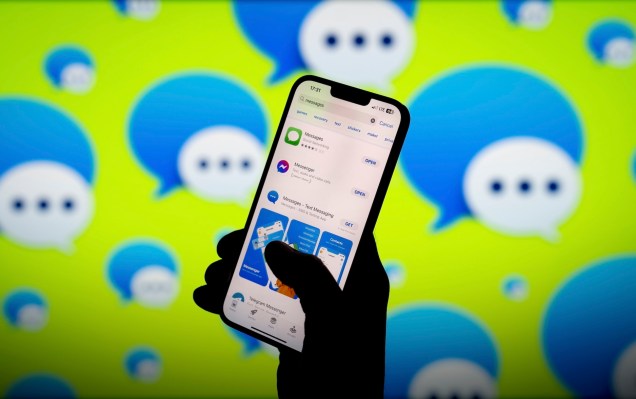Apple announced today it is upgrading iMessage’s security layer to post-quantum cryptography, starting in iOS and iPadOS 17.4, macOS 14.4 and watchOS 10.4.
The technology giant said that in the coming years, quantum computers will be able to break today’s cryptography standards. That’s why Apple said it is changing how end-to-end encryption works with iMessage without the need for quantum-level processing power.
Today’s messaging apps use encryption typically through a pair of public and private keys. The public key is used to encrypt sent messages and the private key is used by the receiver to decrypt a message, though much of this happens automatically and seamlessly. The cryptography used to scramble user messages today works by applying different math functions. The ability of malicious hackers to decrypt messages relies on the strength of the cryptographic cipher in use today, coupled with the raw computing power aimed at calculating every one of the cipher’s mathematical combinations or permutations.
Apple and other companies believe future quantum computers — capable of exponentially faster computations — could break today’s encryption standards.
“A sufficiently powerful quantum computer could solve these classical mathematical problems in fundamentally different ways, and therefore — in theory — do so fast enough to threaten the security of end-to-end encrypted communications,” Apple said in its blog post.
How is Apple doing this?
Apple said that adversaries can start collecting encrypted data today and decrypt it later when quantum computers are more generally available — a technique dubbed “retrospective decryption.”
In its blog, Apple says to protect against future quantum encryption attacks, its encryption keys must change “on an ongoing basis.”
Apple says its new custom built protocol combines Elliptic-Curve cryptography — the existing encryption algorithm for iMessage — and post-quantum cryptography. This forms what Apple calls the PQ3 protocol. When the new PQ3 cryptographic standard rolls out, Apple said it will apply to all new iMessage conversations and older messages by refreshing session keys for prior conversations.
Apple asked two academic research teams to evaluate its PQ3 standard. Since this system is new and we are years away from the general availability of quantum computing power, there is no practical way to measure the efficacy of Apple’s post-quantum protocol.
The tech giant’s announcement comes at a time when lawmakers are looking to introduce online safety rules that run the risk of undermining encryption on messaging services. At the same time, companies like Meta are working on applying end-to-end encryption protection to products like Messenger and Instagram.
End-to-end messaging app Signal last year upgraded to post-quantum encryption algorithms to prevent future quantum-based decryption attacks.
